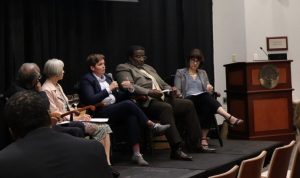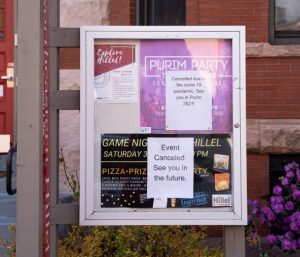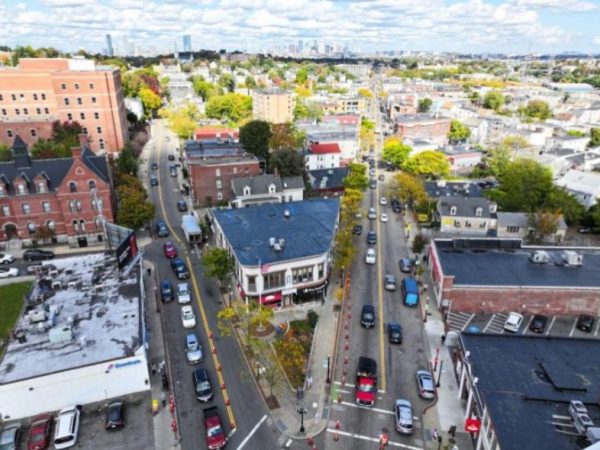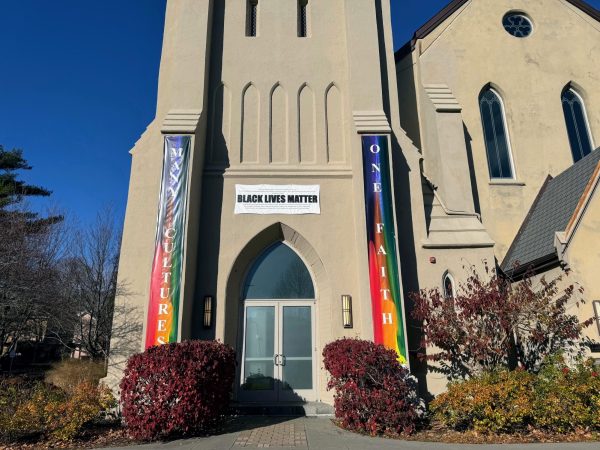College students lose jobs, struggle to find co-ops during pandemic
COVID-19 adds to students’ financial burden and makes internship opportunities harder to secure.
Photo: You X Ventures on Unsplash.
Students are struggling to find businesses still accepting interns during the pandemic.
Anita Wong was working three shifts a week at Starbucks on Massachusetts Avenue, earning more than $600 a month, when the pandemic hit and she, along with all Northeastern University students, went ordered off-campus and back home.
“I work multiple jobs while taking classes during the semester, and now it’s all in a standstill. This is definitely going to affect my family in the long run,” said Wong, a second-year student at Northeastern studying business administration and math. “Even when I have the scholarship to come to Northeastern University, I still have to financially support my big family.”
Wong is one of many students at home and unable to work following the coronavirus outbreak. On March 16, Gov. Charlie Baker ordered a statewide shutdown of all bars and restaurants, effective immediately until further notice. Many businesses have laid off workers or suspended hiring. This has left students facing uncertainty, without work and much needed income, and with little clarity over what will become of Northeastern’s fall co-op program.
“Currently, I’m the only one working in my family of three which consists of my mother, younger brother and myself, and well, my family has bills to pay,” said Kelly Dang, a second-year combined major in computer science and design. “My mom is applying to unemployment benefits and relying on me to help pay bills. It is a stressful time because she isn’t sure when she can return to work.”
Dang’s mother was a nail technician working at ViNa Nail and Spa in Randolph prior to the store’s closure due to COVID-19, and she is now at home receiving unemployment benefits.
Dang is one of many students across the country living paycheck-to-paycheck. According to reporting by CNBC, eight out 10 students work while in school, with at least 45% of students working 30 hours a week. Like Dang and Wong, many students must continue to pay for credit cards and phone bills, while supporting their family. With almost 25% of Massachusetts’ workforce claiming unemployment insurance, many workers are struggling to balance their financial commitments.
“The COVID-19 pandemic is a truly unprecedented event that has not only affected colleges and universities but the entire country and world,” said Bridget Schwartz, president of the National Student Employment Association in Auburn, Maine, in an email interview.
“I have seen many examples of emergency funding and financial resources programs that have been quickly set up to support students during this time,” said Schwartz, who has been assisting professionals who are a part of student employment programs.
Schwartz emboldens students to seek as much help as possible from on-campus resources that are still available. She also encourages students to continue searching for job postings on their university’s career services portal.
Co-op question mark
After Northeastern’s decision to close their Boston campus was announced, some students managed to continue working remotely, including those already participating in the university’s work-study or co-op program. Co-ops are an opportunity for students to engage in a semester-long internship to build skills and industry connections that may help them in their chosen career after graduation.
“Luckily, I did not have to quit my co-op,” said Dang. “The work I do can be done remotely.” She is currently working from home in Boston on a marketing, communications and media co-op for Northeastern’s Employment Engagement and Career Design Center. She has pivoted from promoting the center’s on-campus events to working on presentations and posters with other departments. But she continues to worry about her family’s financial status
“In terms of Fall 2020 co-op, the university understands the impact that the COVID-19 pandemic has had on the job market and is closely monitoring its impact on co-op placements, as well as the latest public health guidance and travel restrictions,” said Shannon Nargi, a senior media relations specialist at Northeastern University, in an email. “There are currently many opportunities available for students and employers are actively posting jobs, conducting interviews remotely and hiring for the Fall 2020 cycle.”
Northeastern students searching for co-op positions for the fall are finding that many opportunities have been postponed or made unavailable.
Wong was offered a position in Wayfair’s department of general finance before the pandemic struck. “I am worried about the co-op being cancelled for the upcoming semester,” she said.
Some students are still searching for an opportunity but finding the stress and uncertainty too much to bear. Anthony Mei, a second-year psychology major, hasn’t found a position yet. He said he is considering taking a gap semester if his situation doesn’t improve because it is too stressful and expensive for him to continue searching without any income.
Mei is disappointed in the university’s response to COVID-19. He said that he hopes administrators will take this pandemic as a lesson toward future preparations for situations similar to this.
Despite the increasing number of frustrations in students who are still actively searching for employment, Wong remains optimistic. She thinks that as long as the community continues to gather together in support, there is hope.
“The experience is definitely not the best,” Wong said. “But I would say everyone is doing their best to support each other at this critical time.”









